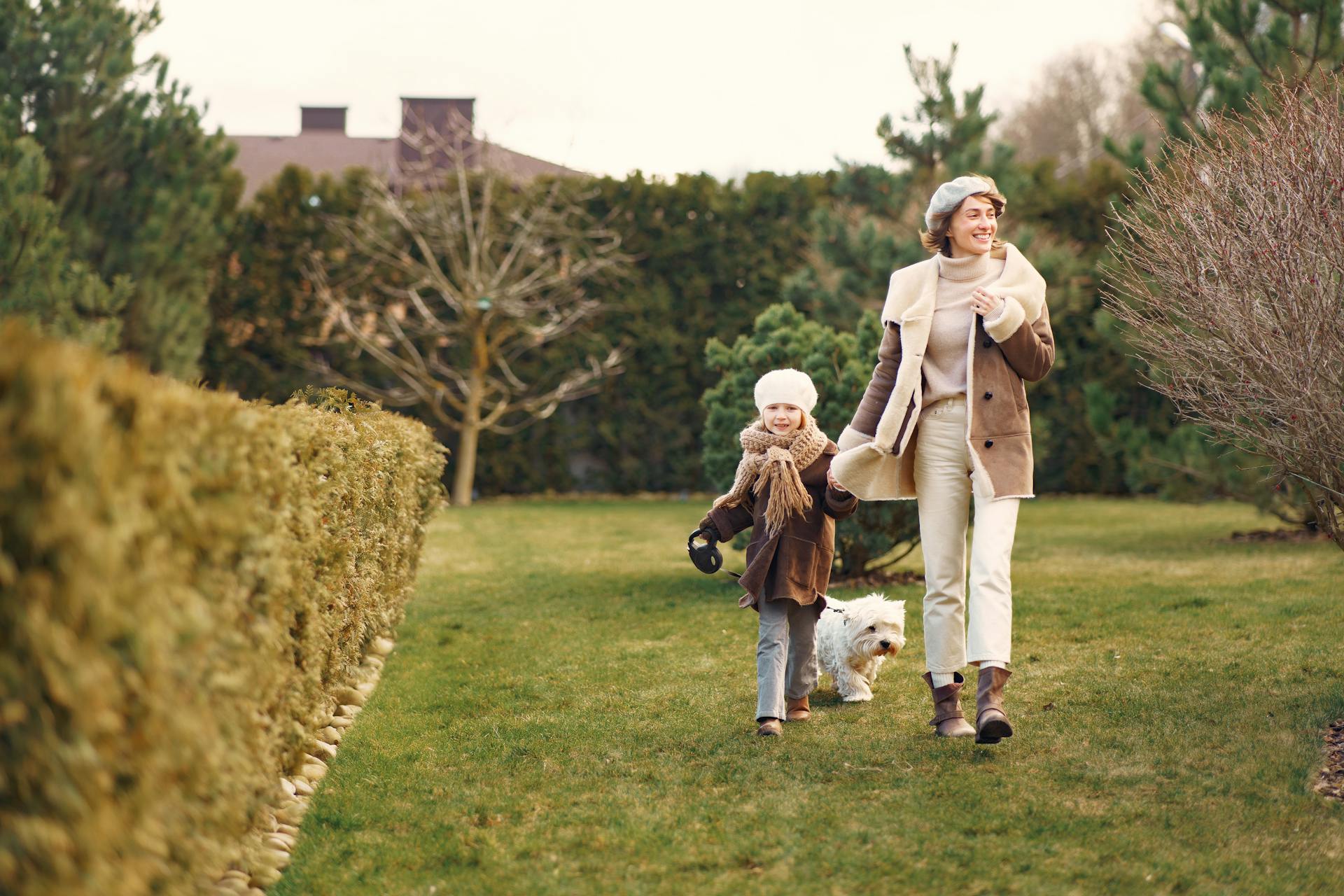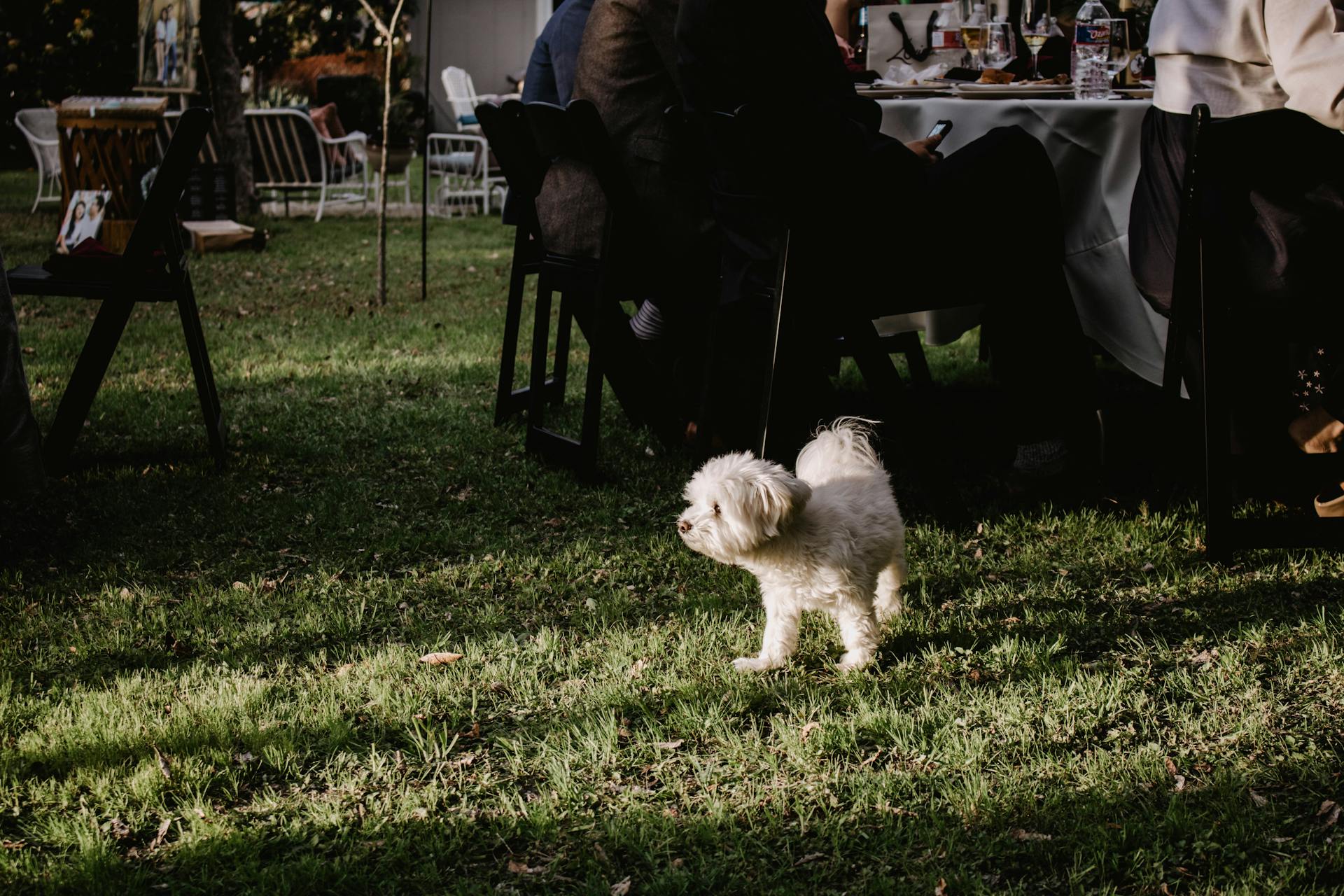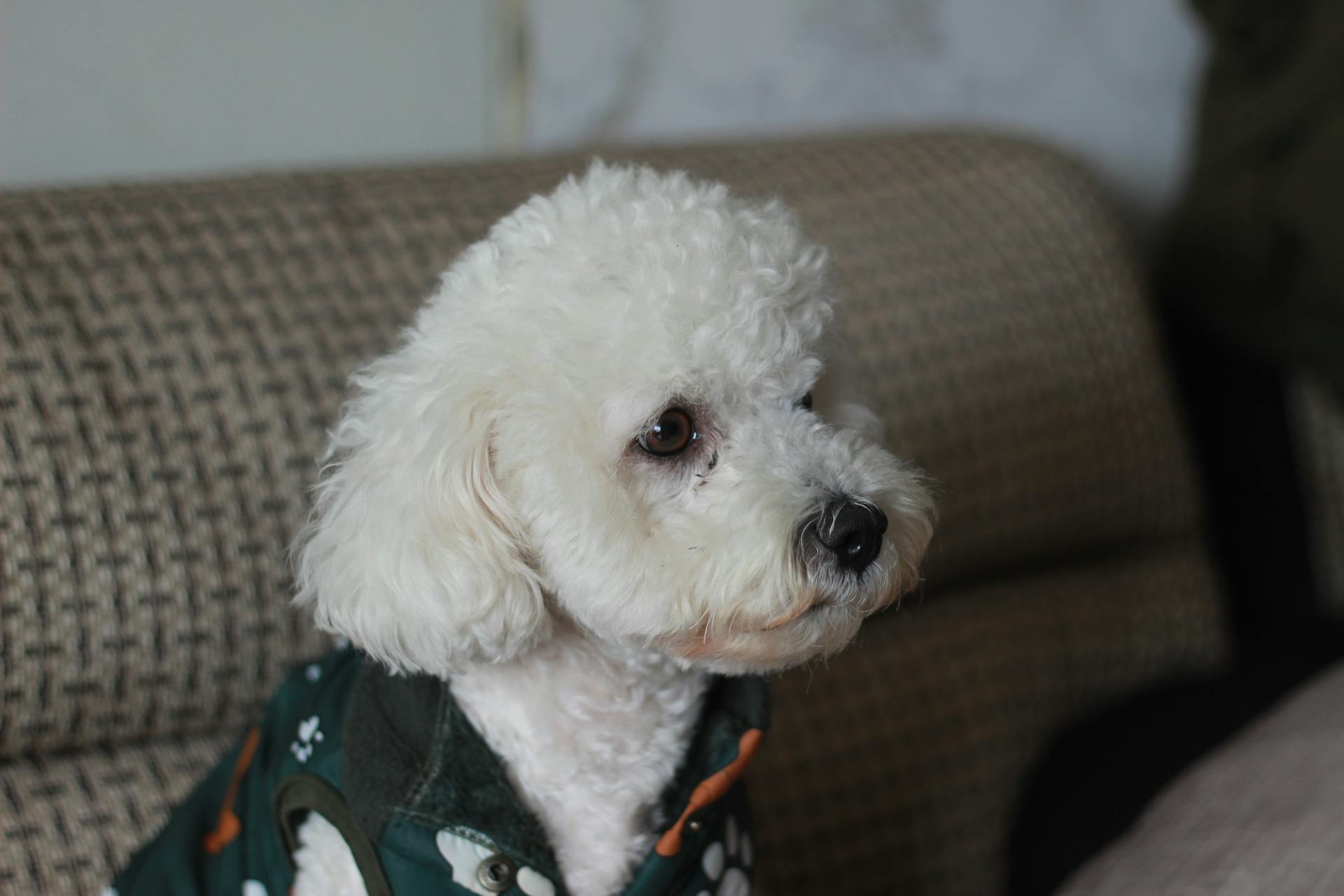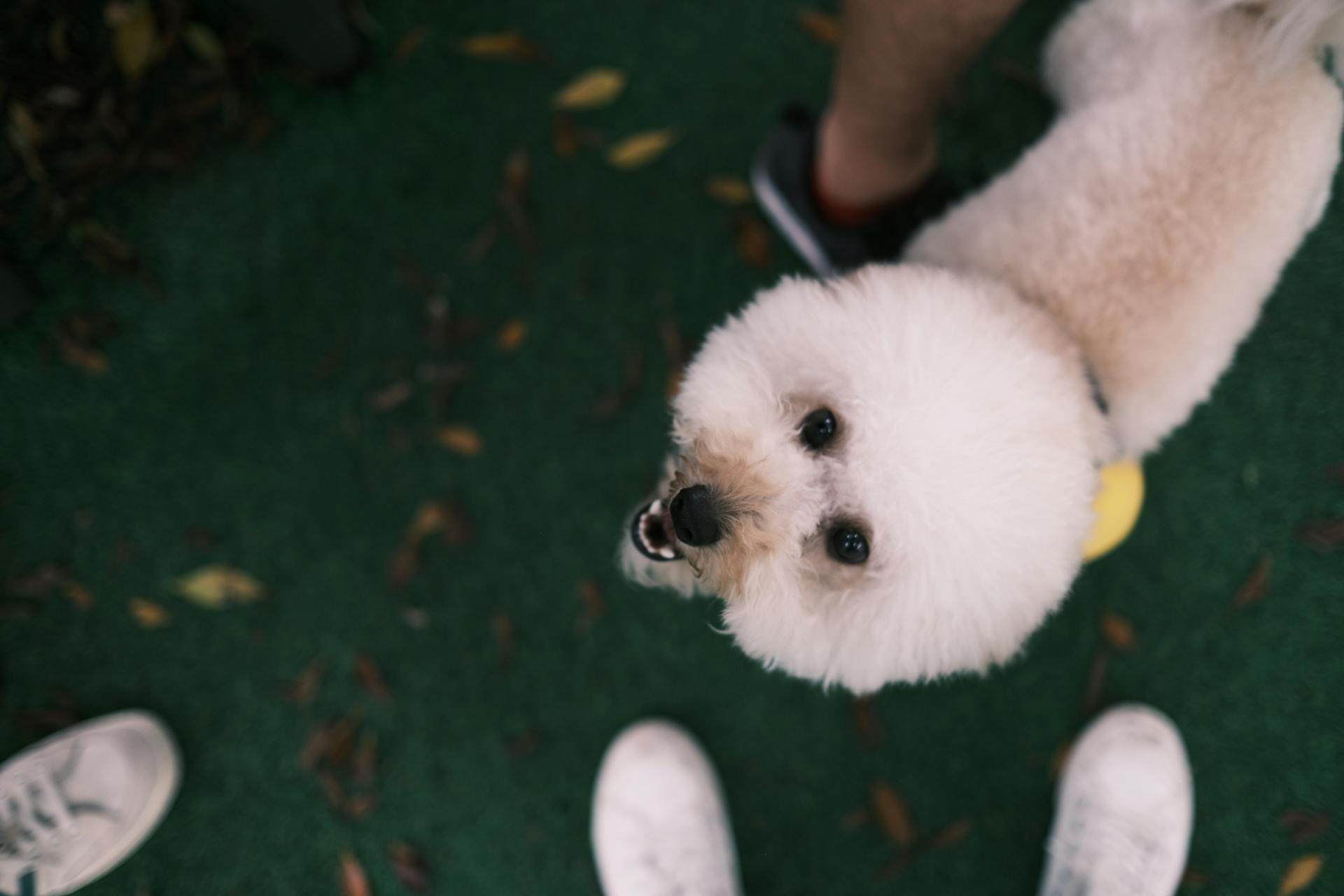
The Old Bichon Frise is a small, fluffy dog with a big personality. They typically weigh between 7-12 pounds and stand 9-12 inches tall.
Their coat is one of their most distinctive features, requiring regular grooming to prevent matting and tangling. They shed very little, making them a great choice for people with allergies.
Old Bichon Frises are playful and affectionate dogs that thrive on human interaction. They were originally bred as companions for royalty and have a natural talent for entertaining their owners.
They can be prone to health issues such as liver disease and allergies, so regular veterinary check-ups are essential.
History and Origins
The Bichon Frise has a rich and fascinating history that spans centuries.
Small lapdogs, including the Bichon Frise, were bartered around the Mediterranean basin for millennia.
These dogs were highly valued by royals and aristocrats, with Cleopatra being a notable fan.
The breed's modern development began on Tenerife, the largest of the Canary Islands, where they became known as the Bichon Tenerife.
The Bichon Frise's association with European nobles started in the 13th century, with them becoming particularly popular in Spain, Italy, and France.
During the Renaissance, the breed reached new heights of popularity, with King Henry III of France carrying his Bichons in a tray-like basket suspended by neck ribbons.
The Bichon Frise's charm and charisma are well-documented, with many portraits by famous painting masters featuring the breed as a beloved companion.
One such portrait, by Titian, depicts Federico Gonzaga with a wooly Bichon at his side, while another, by Sir Joshua Reynolds, shows a Bichon sitting in the lap of luxury with Miss Beatrix Lister.
Expand your knowledge: Small Breed Bichon Frise
Temperament and Personality
Bichon Frises are born people pleasers with high intelligence and a willingness to learn.
They love being the centre of attention and thrive in environments where someone is home most of the day. This is because they can suffer from separation anxiety if left alone for long periods of time.
Their history in the spotlight has made them sociable little dogs that love nothing more than being at the heart of the action.
Bichon Frises are adaptable and cheerful, making them a great fit for most households, including those with children and cats.
However, they can be quite vocal, so training and early socialisation is key to helping them become well-behaved companions.
Here are some key characteristics of the Old Bichon Frise temperament and personality:
- Sociable and loves being the centre of attention
- High intelligence and a willingness to learn
- Prone to separation anxiety if left alone for long periods
- Can be quite vocal, requiring training and early socialisation
Grooming
Grooming an old Bichon Frise requires a gentle touch. Their curly coat can be high maintenance, so daily brushing is a must.
Bichon Frises don't shed much, but their undercoat needs regular attention to prevent matting. This is especially important for older dogs, as their coat can become more prone to tangling.
Older Bichon Frises need regular nail trimming, ear cleaning, and dental care to stay healthy. You may need to adjust your grooming routine as your dog ages, so keep an eye on their needs.
A unique perspective: How to Groom a Coton De Tulear
Their trademark curls catch the shorter undercoat as it moults, making them less likely to shed than other breeds. This is great news for older Bichon Frises, as it means they'll be less likely to lose their coat in clumps.
To keep your old Bichon Frise looking its best, you'll need to take them to a professional groomer regularly. This will ensure their health and give you the opportunity to choose different cuts and styles for your dog.
Here's a quick rundown of what to expect from your old Bichon Frise's grooming needs:
- Daily brushing to prevent matting
- Regular nail trimming
- Ear cleaning
- Dental care
- Regular trips to a professional groomer
Health and Nutrition
As an old Bichon Frise owner, I've learned that proper nutrition is crucial for maintaining their overall health. Bichon Frises don't require much exercise, so it's essential not to overfeed them.
Their diet should consist of high-quality, breed-appropriate food, given in three to four small meals a day until they're six months old, after which they can be fed twice a day.
If your old Bichon Frise has developed common health issues like diabetes, liver problems, bladder stones, or allergies, your vet will advise on the necessary dietary changes.
A special diet may be required, and your vet will help you determine the best course of action.
Here are some feeding guidelines to keep in mind:
- Bichon Frise puppies should be fed three to four times a day, up to six months old.
- After six months, they can be fed twice a day.
Remember, it's easy to overfeed your old Bichon Frise, so be mindful of those sneaky treats!
Training and Lifestyle
As an old Bichon Frise owner, I can attest to the importance of consistency in training. Bichons respond well to positive reinforcement and need patience in order to thrive.
Bichons are energetic dogs that require regular exercise to stay happy and healthy. At least 30 minutes of daily physical activity is a must, which can be achieved through daily walks and playtime in a fenced area.
Old Bichons still love to play, and regular games and interaction can help keep them mentally stimulated and prevent boredom.
Taking to the Show Ring
Bichons have a long history of performing in the show ring, and it's not hard to see why they're naturals. Thanks to their crowd-pleasing antics, they survived into the 20th century.
Their popularity was a result of a few dedicated fanciers who gathered Bichons off the streets of France and Belgium, recognizing them as the "Bichon a Poil Frisé" in 1933. The breed's small but dedicated following in the US worked tirelessly to stabilize important breed traits.
In 1964, the Bichon Frise Club of America was founded in San Diego, marking a significant milestone in the breed's history. The AKC accepted the Bichon into the Miscellaneous class in 1971, paving the way for full breed recognition.
JR, a record-setting Bichon, became the AKC National Championship's first Best in Show winner in 2001, and his signature two-pawed salute to the crowd was a nod to the breed's street-performing roots.
For your interest: Coton De Tulear Show Dog
Training and Exercise
Bichons are naturally eager to please and willing to learn, making them a joy to train with. Early socialization is key to ensure your Bichon grows into a well-behaved dog.
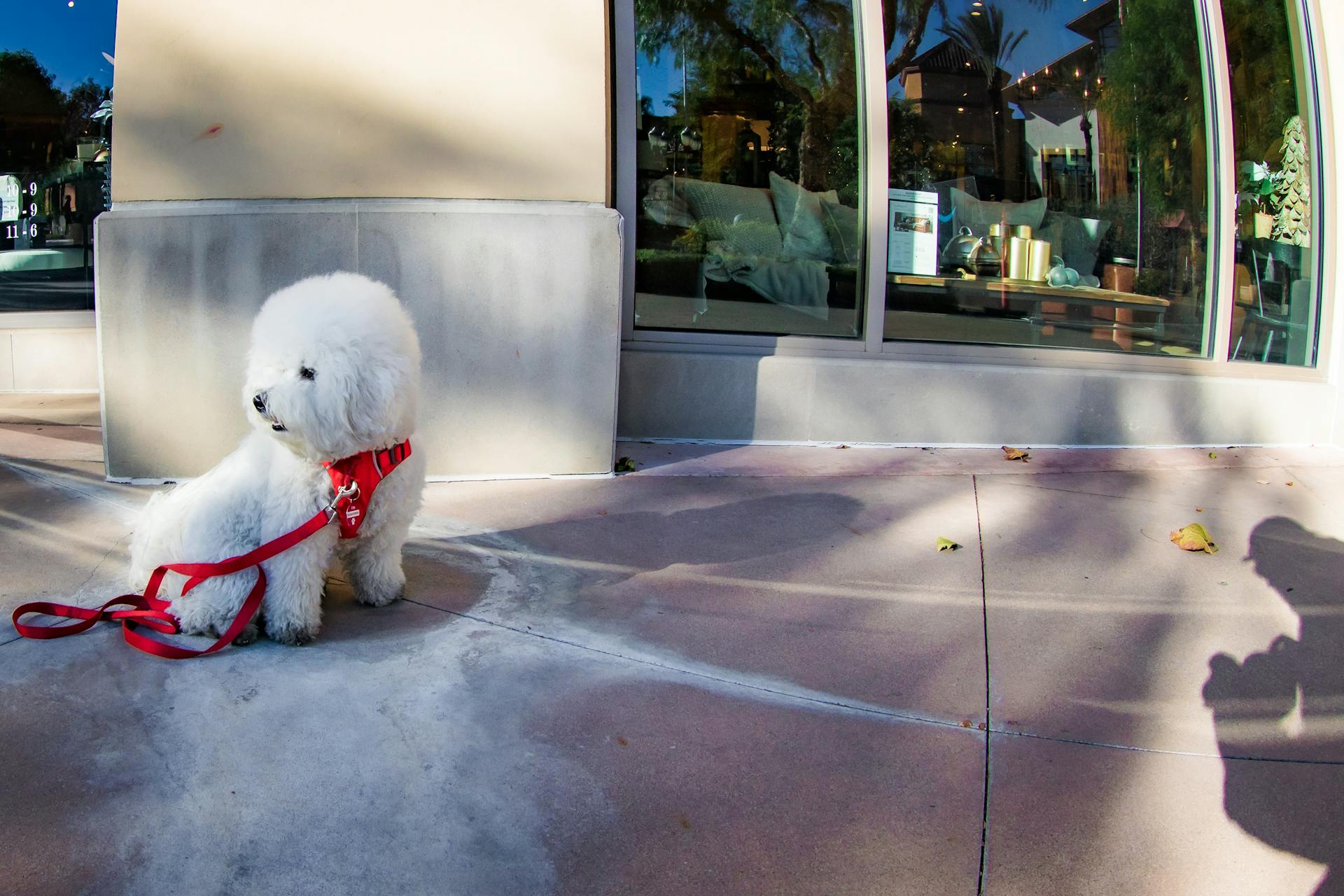
Bichons can be a bit challenging to house train, so patience and consistency are essential. Positive reinforcement is a great way to encourage good behavior.
Your Bichon needs at least 30 minutes of daily physical activity to stay happy and healthy. Daily walks around the neighborhood are a great way to get them started.
A fenced-in area where your Bichon can run freely is a must-have for this energetic breed. Regular games and interaction will help them burn energy and stay mentally stimulated.
With regular exercise and mental stimulation, your Bichon will thrive and become a loving companion.
What Makes Unique?
Bichon Frises are hypoallergenic dogs, making them a great choice for people with allergies.
Their clownish personalities and love for attention have made them popular street performers and circus members in the past.
Bichons are easy to train and have a natural ability to draw an audience, which is why they were often used in circuses.
They shed very little and produce less dander than other breeds, making them a low-maintenance pet.
Bichons are adaptable and easy-going, making them great travel companions and friendly to everyone they meet.
Their history as ship dogs by Spanish sailors who took them on long travels at sea has made them well-suited for life on the go.
Frequently Asked Questions
What age is considered old for a Bichon Frise?
For a Bichon Frise, old age typically ranges from 12 to 16 years, with some living up to 20 years. Understanding their life expectancy can help you provide the best care for your furry friend.
What is the life expectancy of a Bichon Frise?
A Bichon Frise's average lifespan is 14-16 years, with proper care and regular checkups.
How old was the longest living Bichon?
The longest reported age of a Bichon Frisé is 21 years, with unsubstantiated reports of a few reaching 22 years.
Sources
Featured Images: pexels.com
